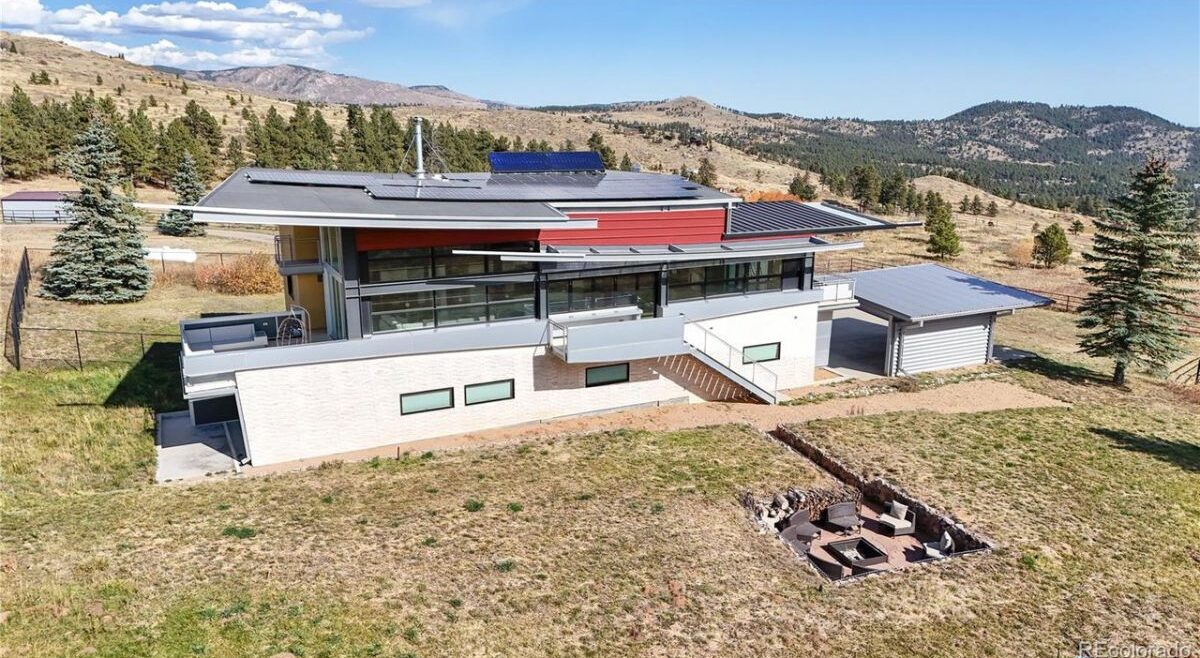Impacts of the Subprime Implosion
by Osman Parvez
—-

According to a new Credit Suisse report, nearly two dozen subprime lenders have ceased operations or have been acquired in the past year. Cumulative losses from subprime loans could exceed $10Bn over the next couple of years.
The question you’re probably asking… what does it mean for the Boulder (and the regional) real estate market? Here’s a few thoughts.
1. The most immediate change is that credit standards are tightening at the bottom end of the market. Those least qualified will find it more difficult to do so going forward. Those with stable work histories, money to put down, and solid credit will continue to find good rates as well capitalized, well established lenders compete for their business. It won’t be impossible for lesser qualified individuals to buy, but they’ll probably have to have to save some money first (which isn’t such a bad idea, is it?).
For too long it’s been far too easy for people to sign up for a mortgage. With their eyes on high profitability, subprime operators focused on selling mortgages to those least able to pay for them. And as always, the lower the credit quality the higher the expense of the mortgage (i.e. risk is related to return).
2. Some markets and neighborhoods will be impacted to a greater extent than others, and perhaps there is a silver lining. Just as when I first started posting research on real estate and talked about the downdraft of the bubble, some areas will see a major downturn (the former bubble markets) and other with strong, well established supply/demand trends and limited speculation will not.
To point, from Kiplinger’s The Housing Market Puzzle (2/20/07),
Nationwide, total existing-home sales, including single-family homes and condos, were down 10% [last year] from the fourth quarter of 2005 (and nearly 18% in the West). On the other hand, nearly half of the markets gained ground in the past year, suggesting that plenty of metro areas are sidestepping the slump. Fourteen metro areas had double-digit increases, including Atlantic City, N.J. (where prices increased a robust 26%), Salt Lake City (up 23%), Trenton-Ewing, N.J. (19%) and Beaumont-Port Arthur, Tex. (15%), according to the Realtors
In the Denver Boulder region, neighborhoods with a heavy concentration of entry level homes, the same places now most impacted by foreclosures, are the ones that will also see lower demand as marginal buyers are removed from the market by tightened credit standards. And for those neighborhoods, it could be quite severe. Some predict that 20% of subprime originations in 2005 and 2006 will end up in foreclosure. The silver lining is that for a well financed investor, the next 12-18 months could represent extraordinary opportunity to purchase in select neighborhoods with carefully researched long term investment potential. If you’re interested in leveraging that opportunity, call me for more details (303.746.6896).
Let’s talk about Boulder. As you probably know, the median sale price in Boulder is well north of $500,000, so as a whole I expect there will be minimal impact from the implosion of subprime lenders. However, there are some neighborhoods and housing types that are at the low end of the market (yes, even in Boulder). The market for these homes and attached dwellings will probably be cooler this year, that means better for buyers and worse for sellers. I haven’t published my usual price based market analysis for Boulder as yet this year, but when I do I expect it to show a cooling at the low end as compared to last year.
3. There is a vicious cycle when credit standards tighten, foreclosures mushroom, and jobs in key sectors like housing construction are lost. A classic vicious cycle means that negative factors beget more of the same, the situation spirals downward and the trend is difficult to break. Here’s a new story from USNews on Denver’s Montbello neighborhood where bank owned homes represent 80% of current inventory. If you’re following foreclosures in Denver, you might want to watch the recorded sessions from Denver’s newly formed Foreclosure Task Force. It’s the city’s attempt to try to deal with the problem.
——
For more information, read the WSJ’s Home Lenders Cut the Flow of Risky Loans. See the mortgage lender implode-o-meter, Denver Post’s “Zero-Down Lenders Folding,” the many posts on the subject by Mish, and Bill “Love the Hair” Fleckenstein’s latest, “Subprime Housing Game is Overl”
For an example of how local lenders are tightening standards, see below. It’s from an email I received regarding one local lender’s newly updated policy on “stated income and stand alones“.
· The minimum Experian score requirement for stated income on term loans secured by a Primary Residence increased from 640 to 660 (Piggybacks and Stand Alones). HELOC guidelines remain at 680 Experian.· The max loan amount for stated income on term loans secured by a Primary Residence decreased from $150k to $100k (Piggybacks and Stand Alones)
· The max loan amount for stated income on 2nd homes decreased from $100k to $50k (Piggybacks and Stand Alones))
· The max loan amount for stated income on Investment Properties decreased from $100k to $50k (Piggybacks–we don’t do Stand Alones on NOO).
Stated W-2 employees must have a minimum of 2 years in the same line of work and income must be reasonable
for their job description. Self-employed borrowers must be self-employed at the same company for a minimum of 2 years.
Here’s the 1 year chart for NFI:
Here’s the 1 year chart for NEW:
Image credits:bigcharts.com, brian u
—-
Want to get blog updates via email? Click HERE.
Ready to buy or sell? Schedule an appointment or call 303.746.6896.
You can also like our Facebook page or follow us on Twitter.
As always, your referrals are deeply appreciated.
—
The ideas and strategies described in this blog are the opinion of the writer and subject to business, economic, and competitive uncertainties. We strongly recommend conducting rigorous due diligence and obtaining professional advice before buying or selling real estate.
Impacts of the Subprime Implosion
by Osman Parvez
—-

According to a new Credit Suisse report, nearly two dozen subprime lenders have ceased operations or have been acquired in the past year. Cumulative losses from subprime loans could exceed $10Bn over the next couple of years.
The question you’re probably asking… what does it mean for the Boulder (and the regional) real estate market? Here’s a few thoughts.
1. The most immediate change is that credit standards are tightening at the bottom end of the market. Those least qualified will find it more difficult to do so going forward. Those with stable work histories, money to put down, and solid credit will continue to find good rates as well capitalized, well established lenders compete for their business. It won’t be impossible for lesser qualified individuals to buy, but they’ll probably have to have to save some money first (which isn’t such a bad idea, is it?).
For too long it’s been far too easy for people to sign up for a mortgage. With their eyes on high profitability, subprime operators focused on selling mortgages to those least able to pay for them. And as always, the lower the credit quality the higher the expense of the mortgage (i.e. risk is related to return).
2. Some markets and neighborhoods will be impacted to a greater extent than others, and perhaps there is a silver lining. Just as when I first started posting research on real estate and talked about the downdraft of the bubble, some areas will see a major downturn (the former bubble markets) and other with strong, well established supply/demand trends and limited speculation will not.
To point, from Kiplinger’s The Housing Market Puzzle (2/20/07),
Nationwide, total existing-home sales, including single-family homes and condos, were down 10% [last year] from the fourth quarter of 2005 (and nearly 18% in the West). On the other hand, nearly half of the markets gained ground in the past year, suggesting that plenty of metro areas are sidestepping the slump. Fourteen metro areas had double-digit increases, including Atlantic City, N.J. (where prices increased a robust 26%), Salt Lake City (up 23%), Trenton-Ewing, N.J. (19%) and Beaumont-Port Arthur, Tex. (15%), according to the Realtors
In the Denver Boulder region, neighborhoods with a heavy concentration of entry level homes, the same places now most impacted by foreclosures, are the ones that will also see lower demand as marginal buyers are removed from the market by tightened credit standards. And for those neighborhoods, it could be quite severe. Some predict that 20% of subprime originations in 2005 and 2006 will end up in foreclosure. The silver lining is that for a well financed investor, the next 12-18 months could represent extraordinary opportunity to purchase in select neighborhoods with carefully researched long term investment potential. If you’re interested in leveraging that opportunity, call me for more details (303.746.6896).
Let’s talk about Boulder. As you probably know, the median sale price in Boulder is well north of $500,000, so as a whole I expect there will be minimal impact from the implosion of subprime lenders. However, there are some neighborhoods and housing types that are at the low end of the market (yes, even in Boulder). The market for these homes and attached dwellings will probably be cooler this year, that means better for buyers and worse for sellers. I haven’t published my usual price based market analysis for Boulder as yet this year, but when I do I expect it to show a cooling at the low end as compared to last year.
3. There is a vicious cycle when credit standards tighten, foreclosures mushroom, and jobs in key sectors like housing construction are lost. A classic vicious cycle means that negative factors beget more of the same, the situation spirals downward and the trend is difficult to break. Here’s a new story from USNews on Denver’s Montbello neighborhood where bank owned homes represent 80% of current inventory. If you’re following foreclosures in Denver, you might want to watch the recorded sessions from Denver’s newly formed Foreclosure Task Force. It’s the city’s attempt to try to deal with the problem.
——
For more information, read the WSJ’s Home Lenders Cut the Flow of Risky Loans. See the mortgage lender implode-o-meter, Denver Post’s “Zero-Down Lenders Folding,” the many posts on the subject by Mish, and Bill “Love the Hair” Fleckenstein’s latest, “Subprime Housing Game is Overl”
For an example of how local lenders are tightening standards, see below. It’s from an email I received regarding one local lender’s newly updated policy on “stated income and stand alones“.
· The minimum Experian score requirement for stated income on term loans secured by a Primary Residence increased from 640 to 660 (Piggybacks and Stand Alones). HELOC guidelines remain at 680 Experian.· The max loan amount for stated income on term loans secured by a Primary Residence decreased from $150k to $100k (Piggybacks and Stand Alones)
· The max loan amount for stated income on 2nd homes decreased from $100k to $50k (Piggybacks and Stand Alones))
· The max loan amount for stated income on Investment Properties decreased from $100k to $50k (Piggybacks–we don’t do Stand Alones on NOO).
Stated W-2 employees must have a minimum of 2 years in the same line of work and income must be reasonable
for their job description. Self-employed borrowers must be self-employed at the same company for a minimum of 2 years.
Here’s the 1 year chart for NFI:
Here’s the 1 year chart for NEW:
Image credits:bigcharts.com, brian u
—-
Want to get blog updates via email? Click HERE.
Ready to buy or sell? Schedule an appointment or call 303.746.6896.
You can also like our Facebook page or follow us on Twitter.
As always, your referrals are deeply appreciated.
—
The ideas and strategies described in this blog are the opinion of the writer and subject to business, economic, and competitive uncertainties. We strongly recommend conducting rigorous due diligence and obtaining professional advice before buying or selling real estate.
Share This Listing!
More about the author
Osman Parvez
Owner & Broker at House Einstein as well as primary author of the House Einstein blog with over 1,200 published articles about Boulder real estate. His work has appeared in the Wall Street Journal and Daily Camera.
Osman is the primary author of the House Einstein blog with over 1,200 published articles about Boulder real estate. His work has also appeared in many other blogs about Boulder as well as mainstream newspapers, including the Wall Street Journal and Daily Camera. Learn more about Osman.
Work with
House Einstein
Thinking about buying or selling and want professional advice?
Call us at 303.746.6896
Your referrals are deeply appreciated.















